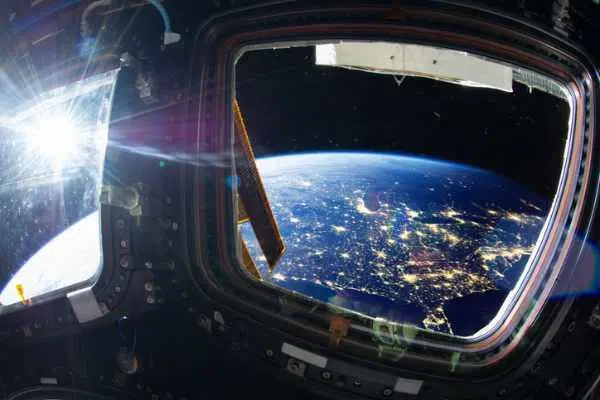Russia has announced it will no longer participate in the International Space Station after 2024. They plan to create their own orbital station.
The impetus is undoubtedly the new cold-hot US war with Russia over Ukraine and the sanctions. Those sanctions include the space industry, and Russia doesn’t want to participate in a weaponized space station.

The International Space Station has been in continuous orbit since November 2000 and is a multi-nation program operated by five space agencies from 15 countries, according to NASA, which plans to use the ISS until 2030, according to Townhall.
Space cooperation was one of the most significant and enduring partnerships the West built with Russia over many decades.
Biden blew it up over Ukraine.
The Chinese already have a space station in orbit.
Roscosmos chief Yury Borisov told Putin, “the decision to leave this station after 2024 has been made.” What did they think would happen when they sanctioned the space station?
“You know that we are working within the framework of international cooperation at the International Space Station. Undoubtedly, we will fulfill all our obligations to our partners. But the decision to leave the station after 2024 has been made,” Borisov told Putin in the Kremlin-issued readout.
CNN reports that Robyn Gatens, director of International Space Station for NASA, said that NASA hadn’t received official word from Russia about the decision to quit the ISS. It doesn’t matter. They’re leaving.
Russia’s space agency says it will withdraw from the International Space Station after 2024, but NASA says that’s news to them. The ISS arrangement between the U.S. and Russia is one of the last civil links between the two countries https://t.co/orpq3x5Wr0 pic.twitter.com/pHxuypBDwu
— Reuters (@Reuters) July 27, 2022
Comet NEOWISE rising over the Earth just before dawn as seen from the International Space Station. pic.twitter.com/AFQ22hCIvv
— Wonder of Science (@wonderofscience) July 26, 2022
Latest time-lapse view of Earth from the International Space Station, Credit : ESA pic.twitter.com/vqPQFlwiCG
— Curiosity (@Sciencenature14) July 25, 2022
Subscribe to the Daily Newsletter



